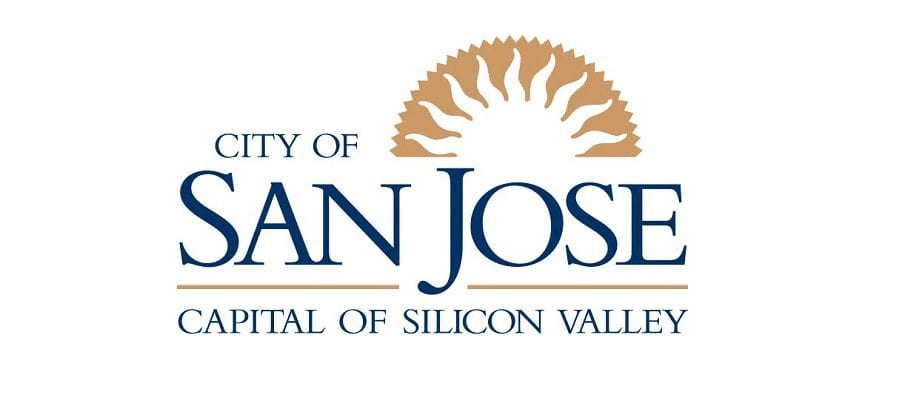“San Jose is the capital of Silicon Valley the way Arlington, Va., can claim to be the capital of the United States because the Pentagon is there.” – Rob Morse, “San Jose: Small Town: Big Slogan.” San Francisco Chronicle, May 22, 1996
In 1988, San Jose decided to call itself the “Capital of Silicon Valley” even though it didn’t have much of a tech industry back then. According San Jose Political Scientist Terry Christensen, the name was championed by Mayor Tom McEnery as a sort of public relations campaign. Speaking truth to power worked, and San Jose eventually became a power player through companies like homegrown eBay and relocated Cisco, Adobe and PayPal.
However, any grasp San Jose had on the tech industry was taken away because other cities, like San Francisco under Mayor Ed Lee, became more aggressive in attracting tech companies.
Say what you want about his controversial mid-Market tax credit, but it worked to cause Twitter, Square and Uber to start their businesses in San Francisco, and now it’s the default place to start a tech business. It’s not a coincidence that nearly every tech company going public this year — Lyft, Uber, Pinterest, Slack, Airbnb — came of age in the Mayor Lee era.
Zoom, which began publicly trading on April 18, has been the first major San Jose IPO since PayPal went public in 2002.
This is not an article to debate the merits of whether San Jose is the Capital of Silicon Valley, how one defines Silicon Valley or which city is the Capital of Silicon Valley. The point of this article is to say that we shouldn’t call ourselves the Capital of Silicon Valley, even if it is true.
As a practical matter, greatness is something best conferred by third parties.
Despite being one of the greatest boxers of all time, people thought Muhammad Ali was cocky and arrogant because he never missed an opportunity to tell you that he was the greatest. People regularly refer to Stephen Curry as the greatest shooter of all time, but if he were to call himself the greatest, he’d lose a lot of devoted fans.
Organizations fail when they think they can’t be replaced. We should be streaming Blockbuster right now instead of Netflix, but Blockbuster couldn’t fathom that people would want mail-in DVDs over a same-day brick and mortar experience.
You’ve heard the sayings “talk is cheap” and “actions speak louder than words.” Our cheap talk is our city’s slogan because it’s hollow without actions to back it up. San Francisco took bold measures to build up its tech industry and it’s going to take something equally bold to take it away.
The Google development will bring much-needed jobs to San Jose, but there’s nothing bold about attracting a satellite campus, especially when the global headquarters is just 15 miles away. Further, tech hubs are formed around unicorns. Notably, none of the FAANG companies (Facebook, Apple, Amazon, Netflix, Google) are based out of San Francisco or Palo Alto and Silicon Beach was built around Snapchat and Tinder.
If we want to be taken seriously as tech hub and innovation center, we can’t think like we’re already there. Because there is no there. The only thing that’s constant in life is change. Removing the proclamation that we’re top dog both keeps us on our toes and helps us remain humble.
You may be thinking, “Okay, hotshot, what are we going to replace it with?”
Well, the answer is nothing. Most cities don’t have slogans, and the ones that do are fairly abstract and not tied to an industry. Austin is “Keep Austin Weird” and Las Vegas is “What happens in Vegas, stays in Vegas.” And if you’re going to be a city with an industry-specific slogan, like Dalton, Georgia, “The Carpet Capital of the World,” your dominance has to be undisputed.
Some people may argue it’s too late to change because we’ve had this slogan for over 30 years and it’s now part of our tradition.
However, you can’t call an aspirational slogan tradition. Moreover, we’ve been trying to get rid of it for at least 23 years. In 1996, a massive 32-member committee unveiled a $1.2 million (present value $1.9 million) marketing campaign with a logo and a new slogan: “Small Town Heart. Big City Soul.”
You have to really hate “Capital of Silicon Valley” to gather a 32-person team and $1.2 million to try to replace it with “Small Town Heart. Big City Soul.”
So how about this: Let’s drop the slogan and become the slogan. Success speaks for itself.
A. Jarrod Jenkins is a tech policy expert and San Jose Downtown Association board member. He is passionate about using innovation and cultural experiences to create vibrant cities.



Leave a Reply
You must be logged in to post a comment.